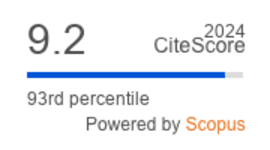Characterization of Somatic Mutations in Malaysian Luminal Breast Cancer
DOI:
https://doi.org/10.36877/pmmb.a0000014Abstract
Luminal breast cancer subtype (ER/PR+, HER2+/-) represents about two-thirds of all breast cancers, and better understanding of the genetic alterations underpinning the disease pathogenesis is desirable to develop improved treatment plans and to increase patients’ survival. To date, other than hormonal and anti-HER2 therapies (e.g. tamoxifen, aromatase inhibitor, trastuzumab), no other targeted therapies have been approved by FDA for luminal breast cancer. Despite thousands of breast tumour samples have been sequenced, there is no data yet on Malaysian patients. Therefore, it is clinically important to identify actionable mutated genes or pathways implicated in our local breast cancer patients to establish a more defined framework for precision medicine and clinical trials. In this discovery study, a total of nine pairs of newly diagnosed luminal breast cancer cases (>80% tumour content) and their matched normal samples were subjected to exome sequencing. We detected a total of 491 somatic from nine pairs of breast tumour-normal samples. PIK3CA is the most frequently mutated gene in our discovery cohort of patients (n=4/9). Kinases and phosphatases were found as the most significantly enriched mutated genes (enrichment score = 3.12), with all nine luminal breast cancer samples harboring at least one non-synonymous mutation in this cluster of genes. This profile suggested that alteration in protein phosphorylation processes is among the key drivers in luminal breast cancer pathogenesis. Interestingly, genes involved in four key druggable cancer pathways, i.e. PI3K/AKT/mTOR, MAPK/ERK, NF-kβ and VEGF signalling pathways were found commonly mutated and require validation in a larger cohort. In conclusion, we have successfully profiled the somatic mutations in Malaysian luminal breast cancer and this is the first study conducted in Malaysian patients. These findings revealed the role of multiple gene testing in discovering luminal breast cancer mutational landscape.
Downloads
Published
How to Cite
Issue
Section
License
Author(s) shall retain the copyright of their work and grant the Journal/Publisher right for the first publication with the work simultaneously licensed under:
Creative Commons Attribution-NonCommercial 4.0 International (CC BY-NC 4.0). This license allows for the copying, distribution and transmission of the work, provided the correct attribution of the original creator is stated. Adaptation and remixing are also permitted.

This broad license intends to facilitate free access to, as well as the unrestricted reuse of, original works of all types for non-commercial purposes.
The author(s) permits HH Publisher to publish this article that has not been submitted elsewhere.



.png)

.jpg)
